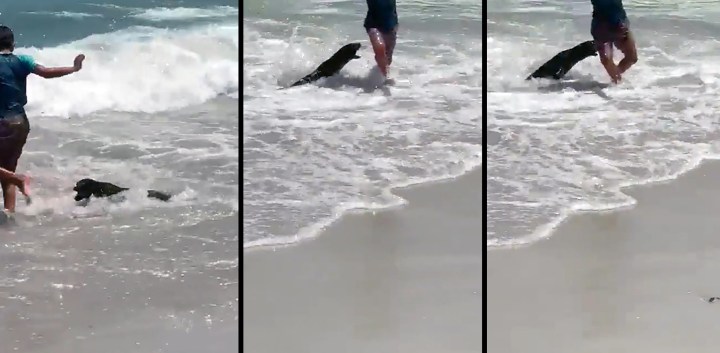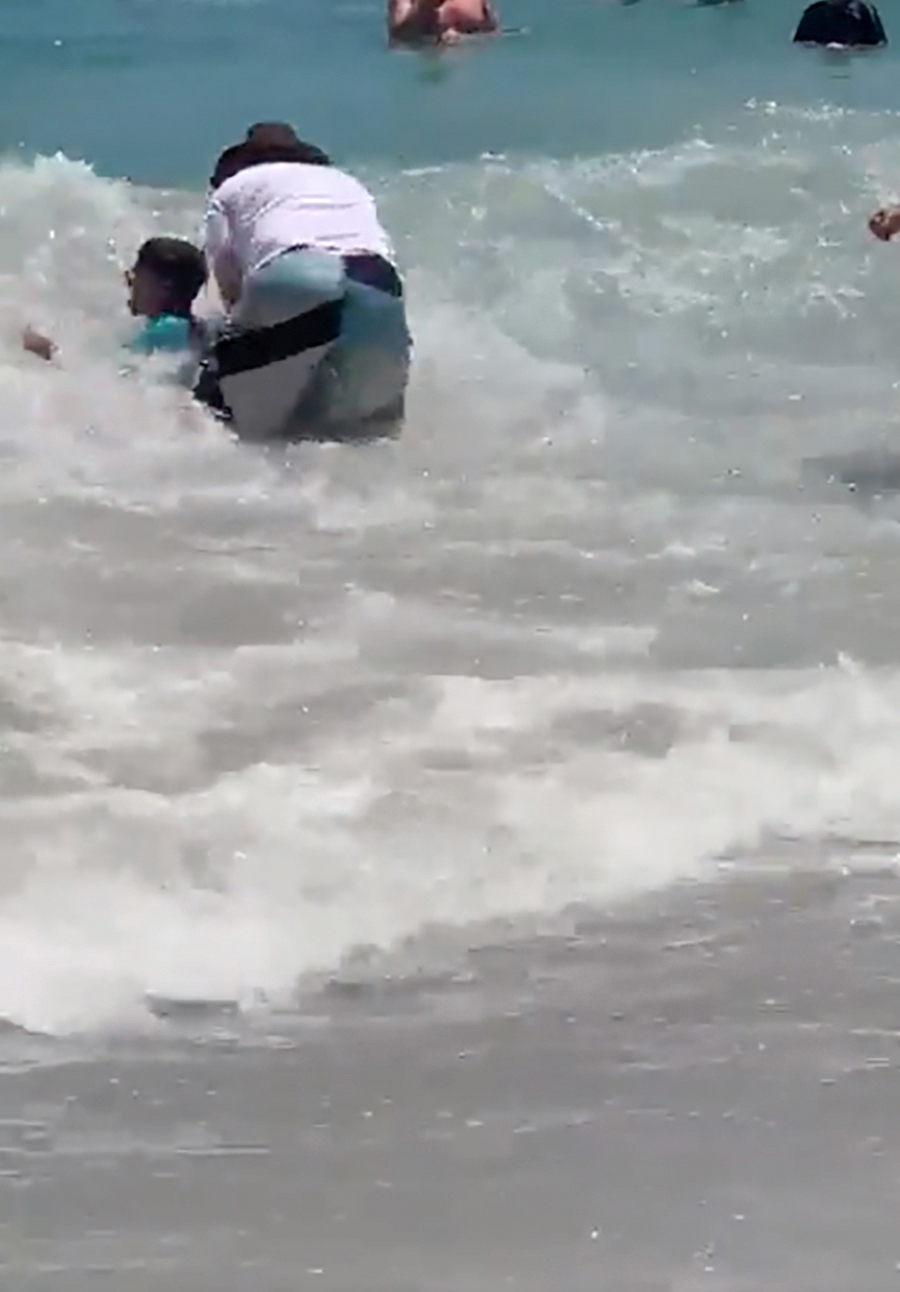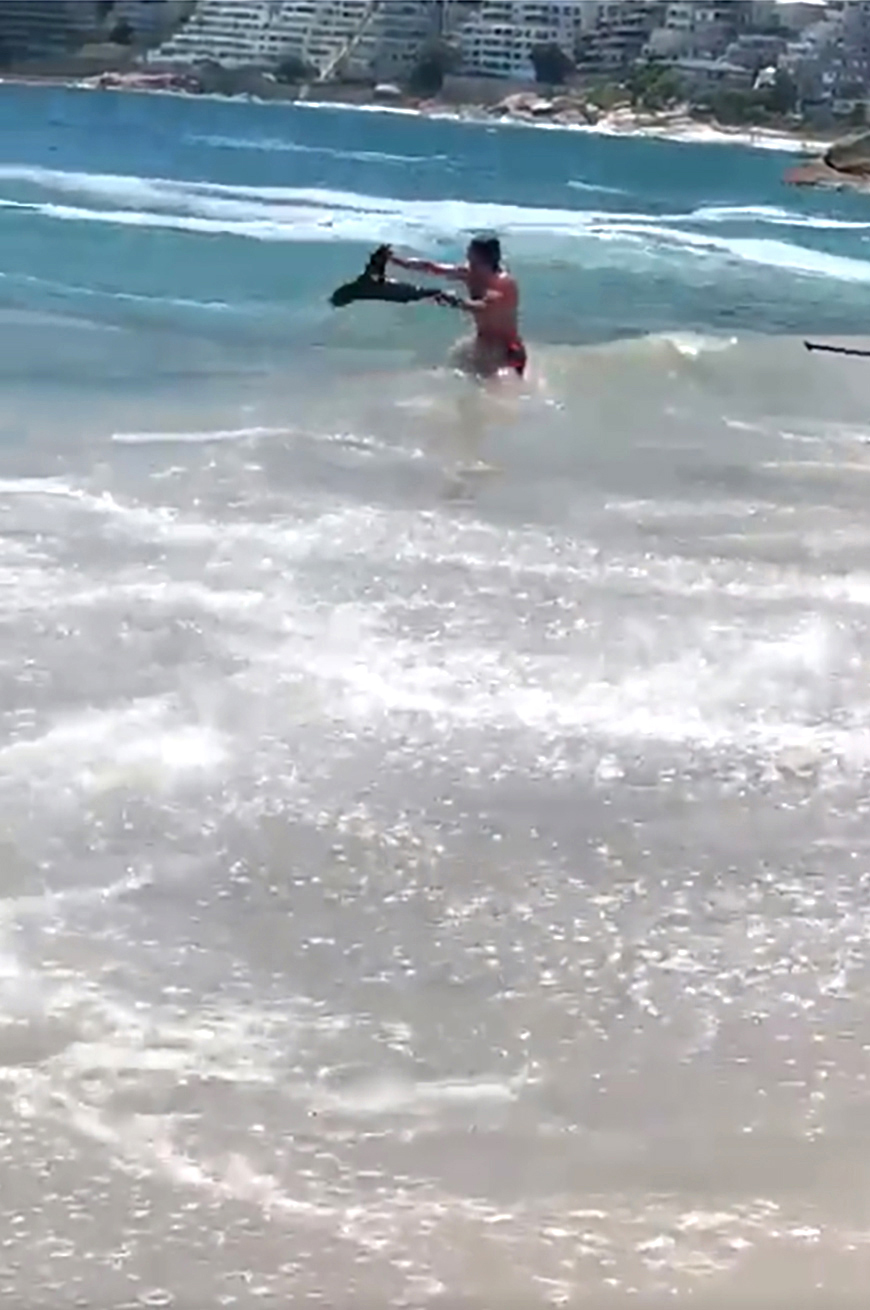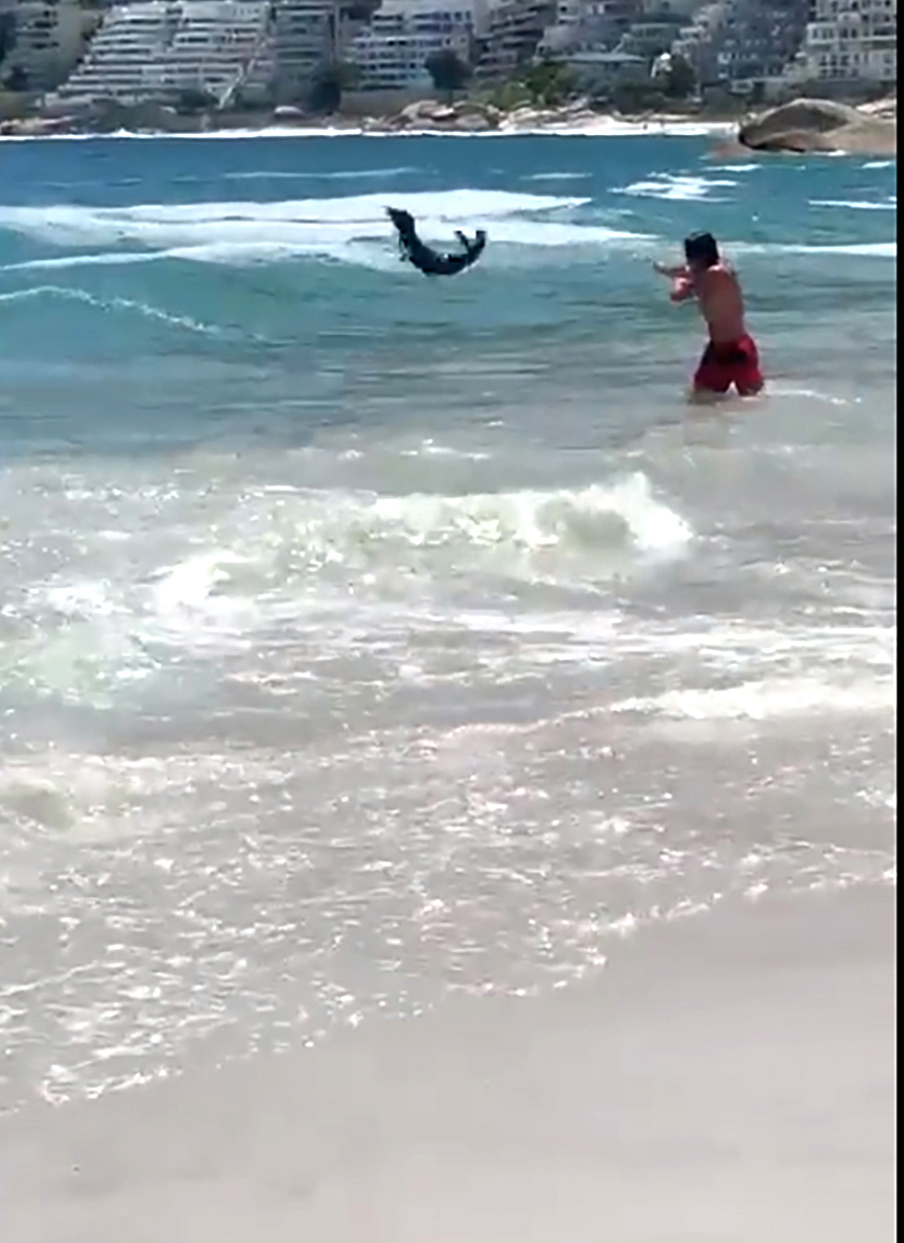OCEAN INCIDENT
Seal attack at Clifton beach could be linked to toxic algae bloom

Swimmers at Clifton’s 4th beach were left in shock on Tuesday after a seal pup attacked a child and a woman. However, experts caution that it's not aggressive behaviour, but defensive behaviour and possibly linked to swelling of the brain brought on by domoic acid poisoning from red tide algae bloom.
A Cape fur seal can be seen frolicking near the shore while the person doing the filming remarks on how cute it is. Moments later, the seal lunges for a boy and begins attacking him.
Bystanders quickly help the child out of the water as a lifeguard blows a whistle to alert others swimming nearby. The seal then heads towards a woman and attacks her too. A man is seen grabbing the seal and heading to the beach with it, before turning and throwing it back into the sea.
Baby seal attacks kid and female at Clifton 4th Beach! 🦦
Imagine hearing “get out the water” and next thing feeling a bite. I would have shat myself! 💩 pic.twitter.com/NHkZbUKwxH
— Dylan Moore (@MrCPT) January 4, 2023
According to eyewitness Biase De Gregorio, the woman was quite far from shore and did not hear the call for swimmers to get out of the water.
“The seal kept coming back… it came in and out the water, attacking the people on the beach. Eventually the lifeguards formed a circle around the seal to stop people from getting too close. After about 20 minutes, it swam out and we didn’t see it again,” De Gregorio told Daily Maverick.

The child that was attacked is helped from the water. (Screengrab: Twitter)
De Gregorio said the boy sustained a bite and a cut on his arms, while the woman had bites on both hands and one arm.
“It was kind of scary. It started off quite cute, but then turned a little bit hectic,” said De Gregorio. Others on social media claimed that the seal had been antagonised prior to the attack.
Seal attacks are not common, but there has been an increase in such incidents in recent times. News24 reported in October last year about a woman attacked by a seal.

A man grabs the baby seal before throwing it back into the sea, see below. (Screengrab: Twitter)

(Screengrab: Twitter)
Brett Glasby, wildlife management programme coordinator of the Two Oceans Aquarium Education Foundation, told Daily Maverick that there had been an increase in seal attacks since December.
“It’s not aggressive behaviour… it’s defensive behaviour. Last year, we had a mass die-off on our coastlines that was attributed to domoic acid poisoning from red tide algae bloom.
“The seals consume fish and crustaceans that have algae bloom domoic poisoning… one of the symptoms is a swelling of the brain.
“The animals that survive domoic acid poisoning suffer neurological damage and we suspect that is what has led to us seeing an increase in the number of attacks around Cape Town,” said Glasby.
Read more in Daily Maverick: “Malnourished and dead seals continue to wash up on South Africa’s coastal beaches”
Glasby said that academic papers on the subject in California have shown that the animals lose their flight response to fear and, instead of fleeing, immediately go on the defensive towards anything in their space.
Visit Daily Maverick’s home page for more news, analysis and investigations
He said this was an educated guess as there was no way of confirming the cause of the behaviour unless an MRI scan was done on the seal’s brain. He said the poisoning effects would be lifelong, but the animals would not live very long.
Glasby said the pup could have been poisoned by suckling its mother as it was too young to have been part of the seal die-off that took place at the end of 2021.
Due to seals carrying bacteria in their mouths, which can lead to infections, bite victims need treatments such as antibiotics or even skin grafts. Humans cannot get domoic poisoning from seals, but can get it from ingesting contaminated shellfish.
Read more in Daily Maverick: “Situation Red Alert issued to recover live rock lobster after mass red tide walkout”
“Everyone needs to know that seals are wild animals. Keep your distance, don’t go near it, don’t engage it, and contact the experts,” said Glasby. DM
Additional reporting by Joel Ontong.




















 Become an Insider
Become an Insider
“experts caution that it’s not aggressive behaviour, but defensive behaviour and possibly linked to swelling of the brain brought on by domoic acid poisoning from red tide algae bloom”
I guess …. if you consider a rabid dog attack to be “defensive behavior”